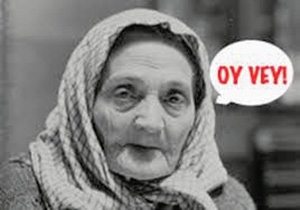
Jewish history is filled with miracles but not magic tricks.
Along those lines, Devarim 18:9-13 states that “[t]here shall not be found among you [the Jewish People] any one that maketh his son or his daughter to pass through the fire, one that useth divination, a soothsayer, or an enchanter, or a sorcerer, or a charmer….” So if you’re throwing a birthday party for your kid, cancel the soothsayer and instead hire a balloon animal-making juggler. As an aside, other fun performers for a birthday party might include Kishke the Clown, Knishy the Contortionist and Tzimmes the Sword Swallower.
On the issue of sorcery, the Talmud has a comment or two. For example, it notes: “Why are sorcerers called mekhashefim? Because it is an acronym for: contradicts the heavenly entourage. This indicates that one should be wary of sorcery.” (Sanhedrin 67b) Yes, sorcery also includes wizardry so you should be wary of Harry Potter too.
The Talmud also refers to and describes a few magic tricks. For instance, the following observation is recorded: “I saw Karna’s father perform a magic trick in which he would blow his nose and cast rolls of silk from his nostrils by deceiving the eye.” (Sanhedrin 67b) That actually is a very convenient trick for a nose blower who needs a handkerchief and enjoys the softness of silk.
The same section of the Talmud refers to another magic trick: “I myself saw a certain person who took a sword and sliced a camel and then beat a drum, and the camel arose from the dead.” The Talmud adds that since no blood flowed from the wound, it “was clearly a deception of the eyes and not sorcery.” (Sanhedrin 67b) By the way, this camel trick is much easier than trying to pull a camel out of a hat.
The Talmud refers to two other magic tricks, both involving donkeys. One involved the purchase of a donkey: “When [the owner] was about to give [the donkey] water to drink, the magic wore off when the donkey touched the water and it was revealed that it was not a donkey, and it turned into the plank of a bridge.” (Sanhedrin 67b) Later that day, for a birthday party game, they played pin the tail on the plank of a bridge.
The other magic trick involved a woman who was turned into a donkey: “Someone then rode upon her and went to the marketplace. Her friend came and released her from the spell and people saw someone riding on a woman in the marketplace.” (Sanhedrin 67b) Speaking of the marketplace, an even better magic trick would be to turn something milchig into something that is pareve.
In today’s world, there arguably are some similarities between magicians and Jews. For example:
- Many magicians wear big black hats. Some Jews wear big black hats.
- Many magicians like to pull a rabbit out of a hat. Some Jews, when celebrating and hoisting their spiritual leader up in a chair, like to pull a rabbi out of his hat.
- Many magicians have something up their sleeve. Some Jews, especially when putting on tefillin, have something up their sleeve.
- Many magicians can do tricks using handcuffs. Some Jews can use their hands to form the Hebrew letter “Cuf.”
- Many magicians ask you to “pick a card, any card.” Some Jews, especially those who sell gefilte fish, ask you to “pick a carp, any carp.”
- Many magicians do tricks using sleight of hand. Some Jews, especially those dancing wildly on Simchat Torah, might (for a moment) get slightly out of hand.
- Many magicians use a wand. Some Jews, especially those in the dessert for forty years, did lots of “wand”ering.
- Many magicians can read minds. Some Jews, especially those obsessing with watching television, mind reading.
- Many magicians can hypnotize. Some Jews, especially those with torn acetabulum, have no ties to their hip, i.e., hip no ties.
- Many magicians ask you to think of a number between 1 and 100. Some Jews, especially at a crowded bakery on a Friday morning, ask you to take a number between 1 and 100… and then wait.
- Many magicians know how to levitate. Some Jews know a Levi who just ate.
- Many magicians have assistants. Some Jews, especially rabbis, have assistants, i.e., assistant rabbis.
Final thought: If a Jewish magician is too hungry to perform a disappearing act, then the magician should refuel by eating some kasha “vanish”kes.
By Jon Kranz













